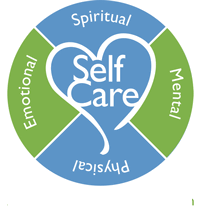Is Self-Care Selfish? Is It Wrong?

Self-care begins with self-respect.You have been deeply loved by God. You are one of His masterpieces. Self-care flows from God’s love.
“Love your neighbor as yourself”—Jesus
Before you can really love your neighbor you must love yourself.
But what does self-care mean?
Selfishness and self-care are two very different things.
Selfishness demands that others respect them. Selfishness is not kind to others unless there is some reward for it. It bullies others to gain respect.
Self care is kind and respects yourself. You do not bully yourself or others because your contentment comes from deep within.
Self-compassion is being content with who you are, both strengths and weaknesses.. You are content with what you have. You are not jealous of the possessions and traits of others because you are comfortable with being the person God created you to be.
Contentment means you don’t have to prove anything to anyone else.
Selfishness hides the truth. It sweeps things under the rug. Lies are told as though they were truth.
Self-care is not afraid of truth. It names and faces our inner demons and is not afraid. Self-compassion is courageous because He casts out fear by his perfect love.
You are patient with yourself because you know that people change slowly. You are patient knowing that set backs are part of growth.
Selfishness demands quick change, instant gratification. It is angry at slow growth. It may become so angry you give up your progress toward healing.
Practically, self care includes keeping boundaries, as, not doing for others what they can do for themselves. Self care accepts personal responsibility, and doesn’t blame others for troubles we bring to ourselves.
Healthy boundaries helps you manage your disease responsibly. Making appointments with your doctors and doing what your doctor prescribes are acts of self-care. In counseling you open your heart and examine the depth of your disease, talking about your frustration, and seek ways to manage your disease.
Boundaries include keeping healthy sleep, exercise, and diet patterns. Keeping healthy boundaries is knowing when to ask for help.
Without self-care you may relapse. A relapse is often worse than the previous episodes. It may mean a trip to your psych ward.
Self-care is not selfish. It leads to healthier relationships and eases the burdens of your disease.
If the Bible has meaning for you here are some Bible verses that encourage self-care.
“Don’t you realize that your body is the temple of the Holy Spirit, who lives in you and was given to you by God? “1 Cor 16:19
Matthew 7:12 “So in everything, do to others what you would have them do to you, for this sums up the Law and the Prophets.”
1 Timothy 4:8 “For physical training is of some value, but godliness has value for all things, …”
As you read the following verses imagine treating yourself in these ways:
“Love is kind and patient, never jealous, boastful, proud, or rude.
Love isn’t selfish or quick tempered.
It doesn’t keep a record of wrongs that others do.
Love rejoices in the truth, but not in evil.
Love is always supportive, loyal, hopeful, and trusting.
Love never fails!
For now there are faith, hope, and love. But of these three, the greatest is love.” (excerpt of 1 Corinthians 13 CEV)
Take care of yourself. We need you.


